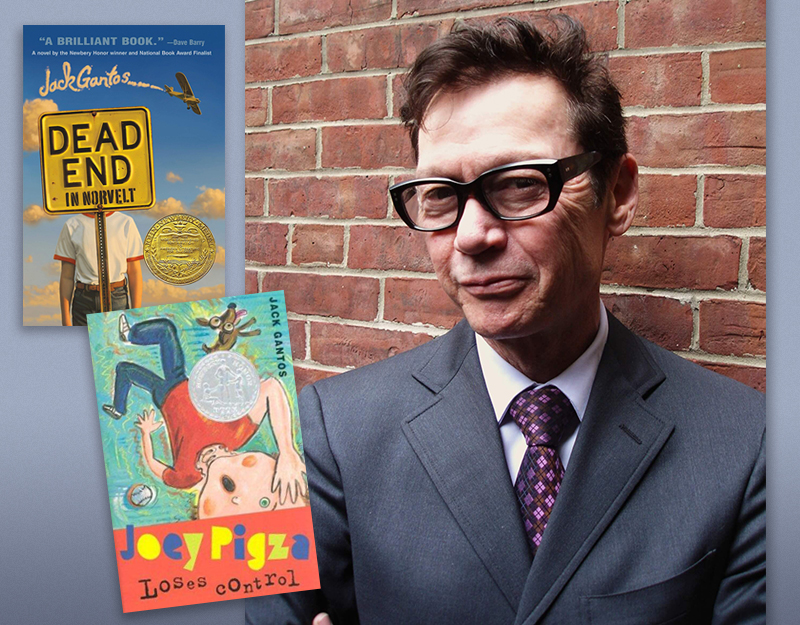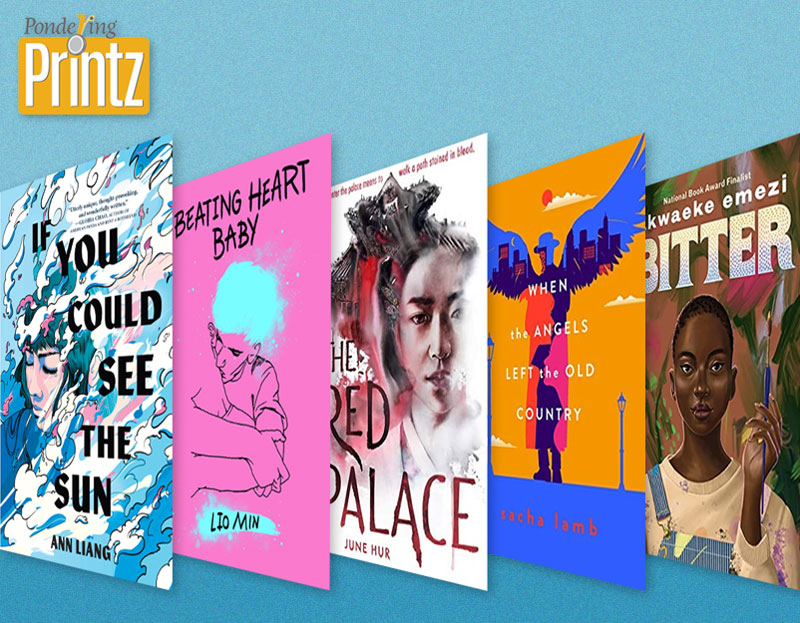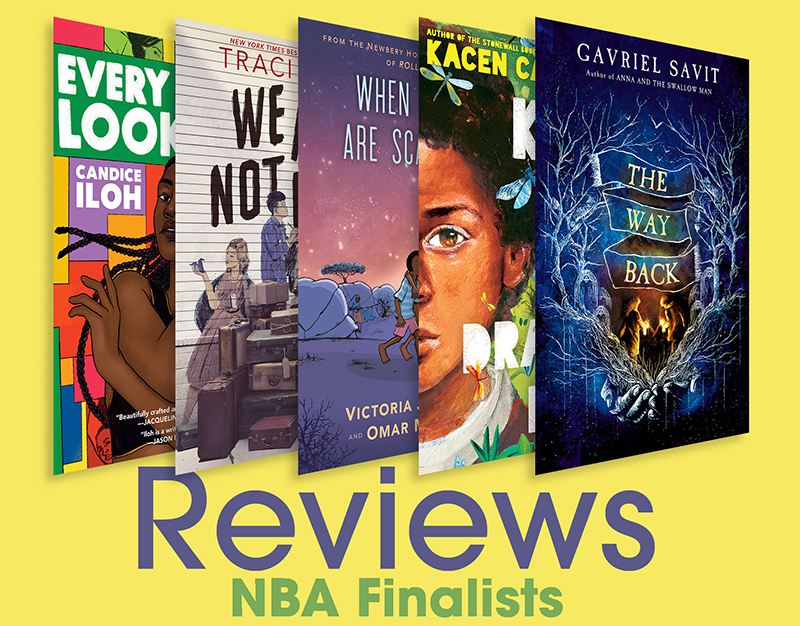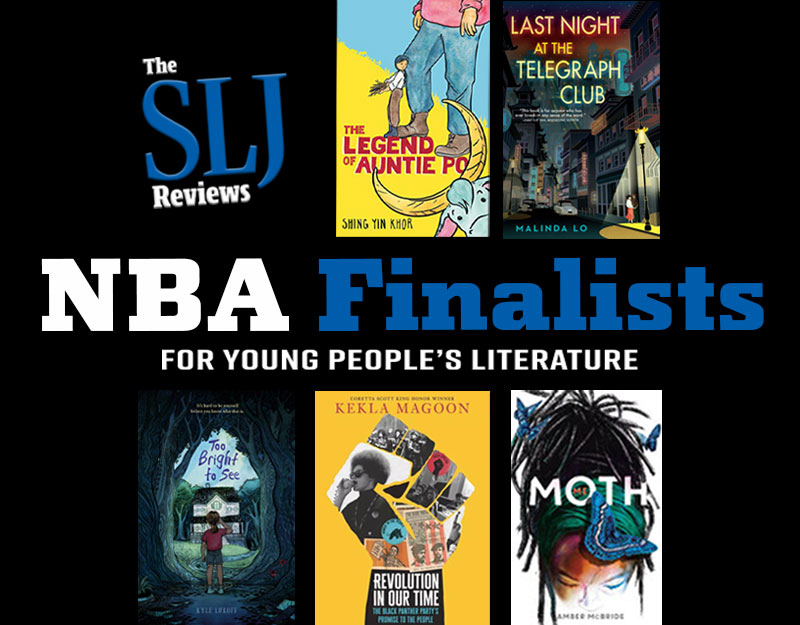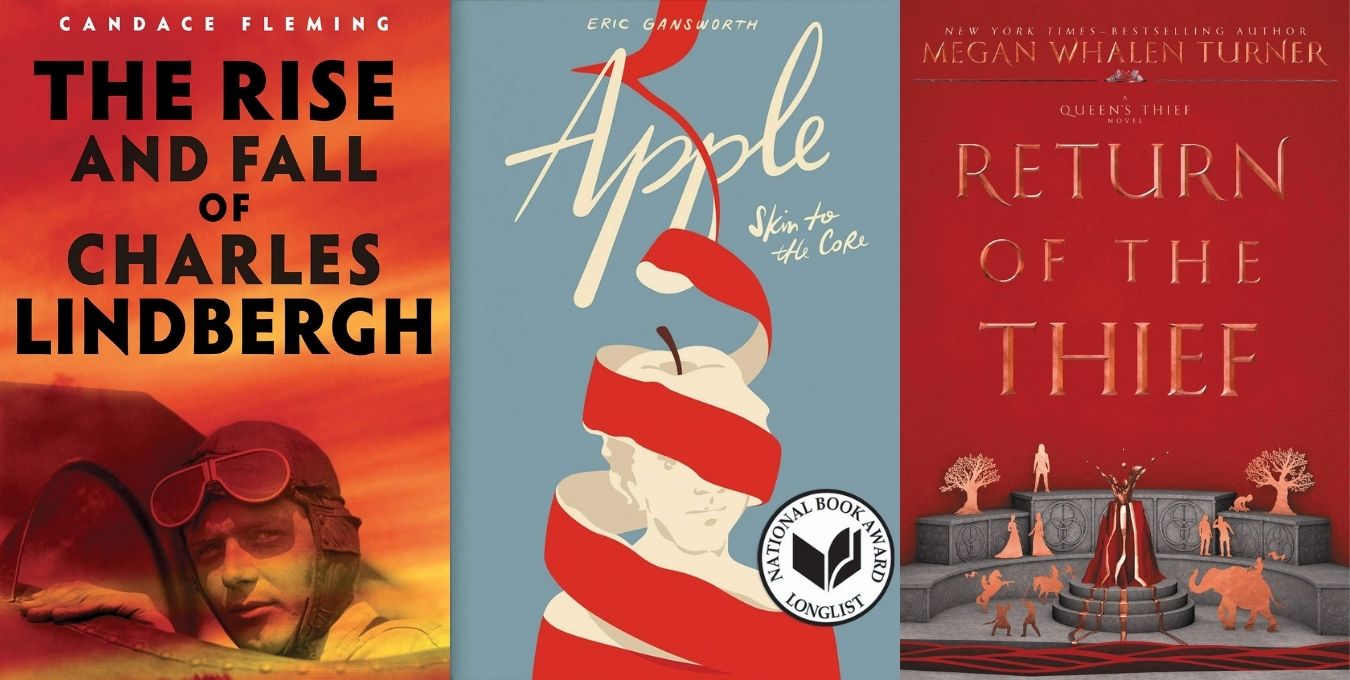Review of the Day: Four Legs Bad, Two Legs Good!
I remember the first time I saw this book. It was at an American Libraries Association meeting and I was strolling leisurely through the Houghton Mifflin booth on the convention floor. The order in which I noticed this book went through the following thought process: 1. Colors pretty. Oh look! It’s D.B. Johnson. The guy who does those nutty Henry David Thoreau in bear form picture books. That’s interesting. 2. The title. It appears to be "Four Legs Bad, Two Legs Good!". 3. Huh. 4. There is a pig on the cover. 5. Huh. 6. Oh my God. He didn’t . . .
But in fact, ladies and gentlemen, he did. Yes, D.B. Johnson has given us an Animal Farm inspired bit of barnyard mayhem for the preschool set that is just the weirdest l’il ole creation ever to saunter down the pike. Filled with sly allusions and a plot that doesn’t quite pull together, it’s a great idea that didn’t quite fulfill its picture book promise. I appreciate the in-jokes, but it takes more than shout-outs to make a book of this sort really work.
ADVERTISEMENT
ADVERTISEMENT
On a farm there are five animals. A horse, a cow, a goat, a duck, and a pig. The pig, as it happens, is named Orvie and he wears the boots. And since he can walk on two legs rather than four he is better than everyone else and gets to be the farmer. Duck quickly sees the flaw in this logic and points out to Orvie that she too has two legs. When confronted, Orvie claims that because he can do hard work, he is more worthy than duck to be the farmer. And when she pulls up all the weeds in the farm, Orvie pooh-poohs her efforts and proclaims that that isn’t really BIG work. In response, Duck empties the pond in the middle of the night. When the other animals see what she has done they chase her for the plug, which she leaves back in the bottom of the pond. Everyone else splashes through the mud to get to her, but Orvie gets stuck, having only his two feet to walk on. That’s when everyone gets together to pull him out (leaving the boots behind) and they discover that when it comes to legs, "18 Legs Best!" The book ends with nobody doing any work and Duck painting the new slogan on the barn.
I took a couple reads of this book to determine if it was a sequel to "Animal Farm" (as the decorations on the side of the barn would suggest), a prequel, or a story that is just influenced by Orwell’s tale but doesn’t really contain the same characters. I had to go with the last of these since the animals didn’t really match up with those left alive at the end of "Animal Farm". Once I had that established I tried to forget everything I knew about Orwell’s story to assess whether or not Johnson’s tale stood on its own two feet (ho ho) or if it was too reliant on a knowledge of the novel that inspired it. Unfortunately, without "Animal Farm" at the forefront of your brain, I can’t see "Four Legs Bad, Two Legs Good", making much sense to you. It’s fine, but the ending is a bit odd. Is it saying that Duck knows how to balance leisure time with work time? And how did they refill the pond? Why empty the pond anyway? Was Duck planning on Orvie getting stuck all along? They’re small questions but some might be the kinds that kids ask in confusion after reading the tale.
Actually, the references and details spotted throughout this story turn the book into a kind of "Where’s Waldo?" for adults. Can you find all the different Orwellian references hidden throughout this story? Well, let’s see… An opening view of the barn and Orvie shows the words, "4 Legs Bad 2 Legs Good" written on the side. A later view shows the crossed out words "All Animals Are Equal". The Manor Farm is now the No-Man Farm (though the inner tubes at the pond still bear the old name). And superimposed on the barn face itself is Orwell’s face. As for the chair on which Orvie sits, the name on the chair changes from moment to moment. At one point it is Napoleon. At another it’s Old Major and at yet another it’s Squeeler (with yet another view of Orwell behind). Orvie is even reading "1984" in one of the views, though it took me a long time to spot that one.
It’s funny, but in spite of the story’s missteps I actually liked Johnson’s art here more than in his previous "Henry" books. Nothing against the "Henry"s, mind. They’re lovely creations and no one is going to go about saying that they aren’t. But it was Johnson’s color scheme here that attracted me. He uses more peaches and purples and light colored greens than he has in the past. The near cubist style he prefers works very nicely too. To my mind this is one of his lovelier books on just an aesthetic level.
So it’s fun for grown-ups and pretty on the eyes, but there’s not much of a story to be found below the surface. Life is too short for author/illustrators not to try something completely wacky and bizarre once in a while. I’d be lying to you if I told you that I didn’t get a kick out of this book. Points for originality then. Maybe it didn’t quite work in the end, but give D.B. Johnson credit for going out there and creating something that nobody in the history of the world has ever tried before. A mess, but a rather beautiful one.
Other Blog Reviews: Strollerderby
Web Reviews: BookLoons Reviews and Publisher’s Weekly
Misc: Interview with D.B. Johnson on Lessons from the Tortoise
Filed under: Reviews
About Betsy Bird
Betsy Bird is currently the Collection Development Manager of the Evanston Public Library system and a former Materials Specialist for New York Public Library. She has served on Newbery, written for Horn Book, and has done other lovely little things that she'd love to tell you about but that she's sure you'd find more interesting to hear of in person. Her opinions are her own and do not reflect those of EPL, SLJ, or any of the other acronyms you might be able to name. Follow her on Twitter: @fuseeight.
ADVERTISEMENT
ADVERTISEMENT
SLJ Blog Network
Top 10 Most Challenged Books of 2023
Double Booking | This Week’s Comics
Parsing Religion in Public Schools
ADVERTISEMENT



